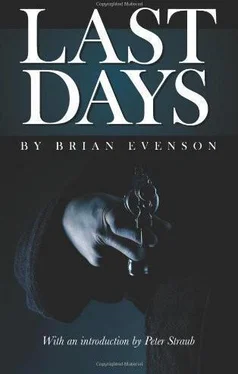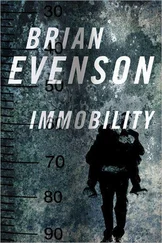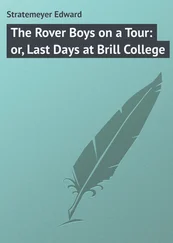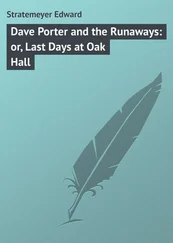"Just lucky, I guess," said Kline.
"Lucky?" said Frank. "Blessed is more like it."
"Don't say that," said Kline.
"What do you want me to say?"
Kline shook his head.
"All right," said Frank. "You've had a hard day, with the multiple killings and all. I'll cut you some slack. One question though."
"What?"
"Why are you still here? Why can't you get out and leave me in peace?"
It was morning by the time he got to his apartment. He rang the super's bell and the super buzzed the front door open, but upon seeing Kline, bloody and carrying the cleaver, he tried to close the door to his apartment. Kline was too quick. He knocked him down as the man babbled. He tried to tie him up, finding it too difficult to do well with a single hand, finally knocking him out with the flat of the cleaver and locking him inside a closet.
The keys to his apartment were on one of a series of hooks in the kitchen, just above the sink. He tore the cords for both of the super's phones out of the wall, then left, climbing the stairs to his apartment.
When he got there he found the door ajar, the police tape across it broken.
Does it never stop? he wondered.
He pushed the door open slowly and, cleaver held ready, went in. The air was dusty and thick. He could see in the dim light from the hallway the dust on the floor, dust that he was now stirring up in slow, drunken eddies. There were other footprints, he saw, dim tracks covered over with dust, smears too on the floor and beneath this the glints of broken glass like dim eyes, and a dark spread of dried blood. And also another pair of footprints, singular, newer, dustless, leading him forward.
The footprints led him out of the entrance hall and back into the apartment. There, in the bedroom, was Gous. He didn't notice Kline at first, just kept sitting and staring idly at his mutilated hand, tracing the smooth flesh from his third finger down to his wrist, stroking it like it was an animal.
"Are you alone?" Kline finally asked quietly.
Gous jumped. "Oh," he said, when he saw Kline. "It's you."
"You didn't answer the question," said Kline.
"Yes," said Gous. "Alone. Just me, Paul."
"What are you doing here?"
"I came to get you," said Gous. "Paul wants to see you. He wants you to report."
"Which Paul?" said Kline. "And what do you mean, report?"
"The first Paul," said Gous. "He wants to know how it went."
Kline came a step further into the room, putting the cleaver down on the edge of the bed. Gous' eyes flicked to it and flicked quickly back, and for just a moment Kline thought maybe he himself had finally made a mistake. But Gous made no move for it.
"I'm going to take a shower," said Kline, and stripped off his shirt.
"Don't you want to report?"
"No," said Kline.
"No?"
"I'll tell you about it and then you can go tell Paul."
Gous shook his head. "Paul insisted you come in person."
"No," said Kline. "I won't come."
"Why?"
"Because Paul wants to kill me."
Gous laughed. "Why would Paul want to kill you?"
"We had a deal," said Kline. "I kept my half of it. His half was that I never had to see any of the Pauls ever again."
"Even me?" asked Gous.
"Even you," said Kline. "Even though you're not really a Paul."
"Don't say that," said Gous, giving him a pained look. He stood up, sighed. "Paul said you might prove difficult," he said. He took a gun out of his pocket and, gripping it awkwardly, pointed it at Kline. "I'm going to have to insist," he said.
Does it never stop? thought Kline again.
"You know what he wants to do to me, Gous?" he asked.
"He wants to talk to you," said Gous.
"He wants to kill me," said Kline. "He wants to crucify me."
The gun wavered slightly in Gous' hand, then steadied again. Kline inched forward. "It isn't true," Gous said.
"It is," said Kline. "Do you want me dead?"
"Not particularly," said Gous.
"I didn't kill Ramse," said Kline, and watched the gun waver again, go steady.
"No?" said Gous.
"No," said Kline.
"I suppose that's good," said Gous. "I don't like to imagine him dead."
"If you take me back," said Kline, "they'll kill me."
"No," said Gous. "We won't."
"Then why the gun? Why would Paul insist on me reporting in person? Why would that matter?"
Gous shrugged. "How should I know?"
Kline sighed. "All right," he said. "What else can I do?" he asked. He started to turn away and then half-turned back. "One other thing," he said. "That gun won't do you any good."
"Why not?" asked Gous.
"Haven't you heard?" said Kline. "I can't be killed." And this time when the gun wavered, Kline's hand was already on it, tearing it out of Gous' grasp.
He made Gous turn around and raise his hands and then struck him on the back of the head with the butt of the pistol. He left him lying there in a heap on the floor while he slipped out of his pants. Wiping his chest and legs best he could with a dry towel, he found a clean shirt and a new pair of pants, put them on.
In the kitchen he washed his face. Suddenly he felt very tired.
There was a bucket under the sink and he took this. The sink had a spray nozzle at the end of a piece of retractable tubing and he tore this tubing out and then broke the spray nozzle off, leaving water gouting up in the sink. He coiled the tubing, dropping it into the bucket.
Gous was awake now in the bedroom, groggy, rubbing his head.
"You shouldn't do this," he said.
"Nothing personal," said Kline. "You'll thank me for it later," he said, and then struck Gous again, this time on the side of his head.
He searched Gous, taking his cigarette lighter. Gous' car keys and wallet he threw out the window, and then he left.
He stayed there, leaning his head against the steering wheel. Is there any other choice? he was wondering. The plastic of the steering wheel was slick and cold.
Of course there's another choice , he thought. There is always another choice. I'm just not going to take it.
He lifted his head. On the seat beside him, a collection of objects, disjecta: a bucket, a coil of tubing, a cigarette lighter, a cleaver, a pistol, a man's head.
He lifted the head by the hair and dumped it into the bucket, the tubing as well. The cigarette lighter he forced into a pocket. The gun he slid into his belt, the cleaver as well.
He got out carrying the bucket, then set it down on the curb, taking the head and the tubing out.
He snaked one end of the tubing into the car's gas tank and sucked on the other end, feeling the rough plastic of the broken nozzle with his tongue until gas poured first into his mouth and then onto the sidewalk and then into the bucket. He let the bucket fill about three quarters full, then pulled the tube free, threw it under the car.
He carried the sloshing bucket a few dozen meters down the sidewalk. He stopped just shy of the revolving door, and left it there against the building wall.
It's not too late , he thought on his way back for the head, but knew it was-even before he'd picked up the head, even before he'd carried it through the revolving doors and into the lobby.
The doorman Paul was there, or a doorman Paul anyway. How had the sequence gone?
"Well met, Paul," said Kline.
"Well met, Paul," said the Paul. "Friend Kline, I mean."
"Just have to report," said Kline.
"Of course," said the Paul. "Might I ask what you have in your hand?"
"This?" said Kline. "Borchert's head."
"Ah, I see," said the Paul.
"I'm going to put him down," said Kline. "I left something outside."
The Paul nodded, started toward the desk and the telephone. Kline hurried outside, took the bucket by the handle, carried it sloshing back in.
Читать дальше












